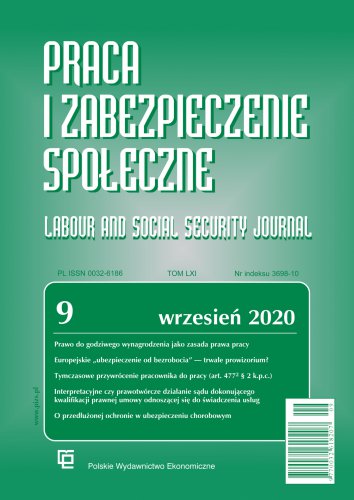Labour and Social Security Journal 9/2020
ISBN: 0032-6186
Pages: 64
Publication date: 2020
Place publication: Warszawa
Binding: paperback
Format: A4
Publication date: 2020
Place publication: Warszawa
Binding: paperback
Format: A4
DOI: 10.33226/0032-6186.2020.9.1
JEL: K31
DOI: 10.33226/0032-6186.2020.9.2
JEL: K3
DOI: 10.33226/0032-6186.2020.9.3
JEL: K31
DOI: 10.33226/0032-6186.2020.9.4
JEL: K12
DOI: 10.33226/0032-6186.2020.9.5
JEL: K31
DOI: 10.33226/0032-6186.2020.9.6
JEL: K39
DOI: 10.33226/0032-6186.2020.9.7
JEL: K31
DOI: 10.33226/0032-6186.2020.9.8
JEL: K31
DOI: 10.33226/0032-6186.2020.9.9
| Odbiór osobisty | 0 € |
| Kurier Inpost | 4 € |
| Kurier FedEX | 4 € |
| Inpost Paczkomaty | 4 € |
| Free delivery in Reader's Club | from 47 € |

